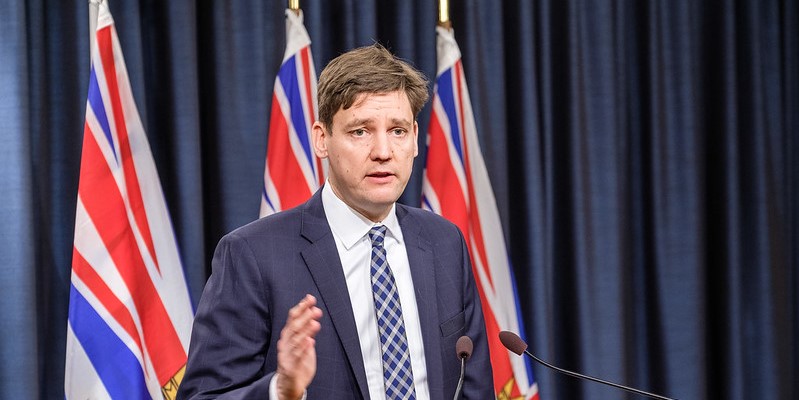B.C. government sparks debt explosion with far-reaching consequences

The Eby government recently tabled its budget for fiscal year 2024-25. The budget, which includes an explosion of debt, is a generational error that could take more than a decade to rectify.
First, let’s understand the evolution of provincial finances since 2019/20, before the pandemic. In 2019-20, program spending—that is, government spending on things such as health and education—reached $56.3 billion, debt interest costs were $2.7 billion and revenues totalled $58.7 billion, meaning the government ran a small deficit ($362 million). Total provincial debt stood at $72.2 billion.
Between 2019-20 and the current budget year (2024-25), the province’s population grew by 11.0 per cent and prices (i.e. inflation) increased cumulatively by 18.2 per cent. So, to maintain program spending levels, the provincial government would have had to increase program spending by 29.2 per cent.
And yet, from 2019-20 to 2024-25, the government increased program spending by 51.6 per cent, resulting in a marked increase in per-person spending. Excluding COVID-spending, 2024-25 will be the highest level of per-person spending (inflation-adjusted) in provincial history, which builds on the already historic highs of the previous two years.
Revenues only increased 39.0 per cent, which means the province has gone from essentially balancing the budget in 2019-20 to borrowing $7.9 billion this year, not including debt incurred to fund capital projects such as highways, new schools and other infrastructure. Total provincial debt will reach a projected $123.3 billion, which is a 70.8 per cent increase from 2019-20. With higher debt, comes higher interest costs, which are expected to total $4.1 billion this year, which is more than 1.5 times higher than interest costs in 2019-20.
The outlook for the next two years included in the budget, namely 2025-26 and 2026-27, is no better. Program spending will increase to a projected $87.0 billion by 2026-27, but this assumes a near complete spending freeze in 2026-27, which, given this government’s record, is unrealistic. Actual program spending in both 2025-26 and 2026-27 will likely to be higher, and possibly much higher than currently budgeted.
If the government increases spending beyond its projections, the already worrying debt numbers will be even worse. Currently, the government expects total provincial debt to reach $165.0 billion by 2026-27, with interest payments of $5.7 billion. As a share of the economy, the province’s debt will increase from 23.4 per cent in 2019-20 to at least 35.8 per cent in 2026-27. Put differently, this means per-person provincial debt (total) will have almost doubled from $14,119 in 2019-20 to $28,095 in 2026-27.
And again, the unrealistic spending numbers for 2026-27 mean the deficit that year ($6.3 billion) and thus the overall debt will likely be even higher. And indeed, the spending restraint planned for 2026-27 is unrealistic if we simply compare the planned spending from last year’s budget to this year’s budget. Last year’s budget planned for total spending to reach $83.0 billion in 2024-25, which itself was an increase from the previous year. Total spending this year is now planned to reach $89.4 billion, a $6.4 billion increase from last year’s budget. Not surprisingly, the planned deficit for 2024-25 increased from $3.8 billion in last year’s budget to $7.9 billion in the current budget.
The NDP government under Premier Eby has demonstrated very little, if any, restraint in spending and borrowing. The surge in British Columbia’s debt will impact future budgets for the foreseeable future as interest costs mount and consume larger portions of the budget. It will take years to restore fiscal balance and reduce the debt burden because of the errors and poor policies in this year’s budget.
Authors:
Subscribe to the Fraser Institute
Get the latest news from the Fraser Institute on the latest research studies, news and events.

